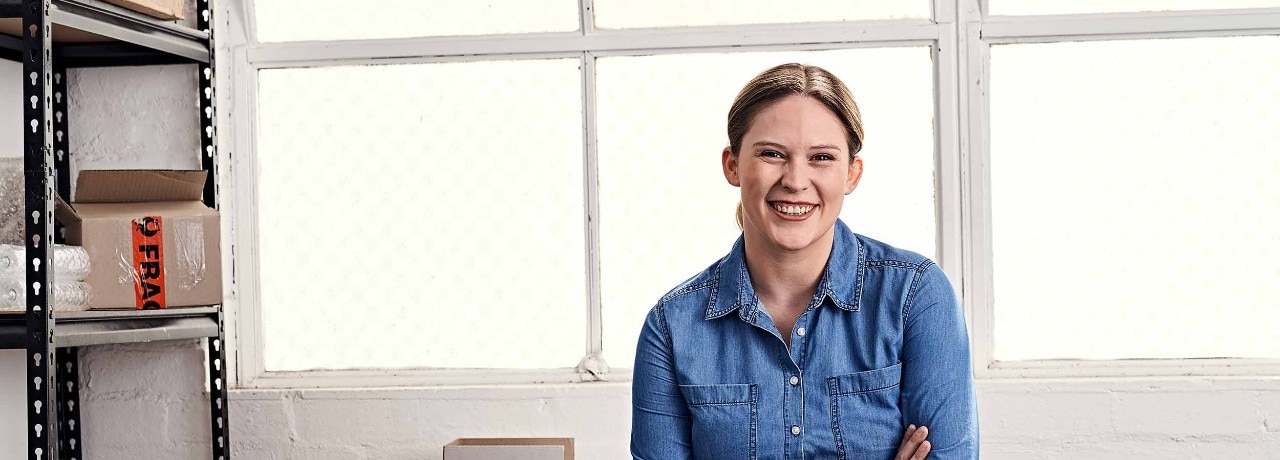Here’s why you need a separate business bank account - NAB
Difference between a business account and a personal account
When you're running a business, keeping your personal and business finances separate isn't just good practice, it’s often essential. The best small business bank accounts generally include features that support the unique needs of businesses, from managing cash flow to tracking expenses and accessing tailored support. In contrast, personal accounts are built for everyday individual use and may lack the tools and flexibility that small businesses require.
Understanding the key differences can help you choose the right account for your goals and ensure your finances stay organised and compliant. Let’s take a look at some of the most common questions associated with business vs. personal bank accounts.
Why you need a business bank account?
Using your personal account for business can blur your financial records and attract ATO scrutiny. It may lead to missed deductions, audit risks and complications when applying for finance.
Business bank accounts allow you to easily manage your business expenses and income. Personal bank accounts help individuals access and manage their personal funds. If you're a small business or a sole trader starting out, it's a good idea to open a business bank account, even if you run your business part time.
Learn about business savings accounts in our article 10 tips for choosing the right business savings account.
Can I have one bank account for multiple businesses?
Yes, you can use one business bank account for multiple businesses if they operate under the same ABN or legal entity. However, if you have separate or multiple business accounts, it can help ensure financial tracking and reporting is easier to deal with – especially accounting and bookkeeping.
How many business bank accounts should I have?
The number of business bank accounts you should have depends on your financial needs. Many businesses benefit from at least two accounts. This includes one for daily transactions and one for savings or tax purposes. Additional accounts may help you manage different revenue streams or expenses more effectively.
What business accounts are suitable for smaller businesses?
The best small business bank accounts offer features that support day-to-day operations, simplify cash flow management and provide access to expert business support when you need it most.
Whether you're just starting out or scaling up, NAB offers a range of business accounts designed to suit different needs, helping you stay focused on what matters most: growing your business.
For example, the $0 monthly fee business account is a popular option for small businesses and sole traders looking to minimise costs while still accessing essential banking features.
Benefits of a business bank account
Many small business owners use their existing personal bank accounts, but there are benefits to opening a separate and dedicated account to manage your business finances.
Make tax preparation easier
When tax time comes, it'll be easier to get your books in order if you have a separate account for your business. You won’t have to spend hours trying to work out which transactions were for your business.
If you use a bookkeeper or accountant to do your tax, you won’t have to pay them to sort out what’s business and what’s personal.
A separate business account can make it a lot easier to identify and deduct any bank fees from your tax liability. Make the most of small business tax benefits to help improve your tax position.
Easier to scale later
As your business grows, so do your financial needs. Starting with a dedicated small business bank account lays the foundation for smoother scaling in the future. It allows you to build a clear financial history, which can be crucial when applying for business loans, attracting investors or expanding operations.
Link to other business accounts and accounting software
If you have a business bank account you can link other accounts like a business credit card or a merchant payment device, making managing all your transactions smoother and less time-consuming.
Once your business starts using accounting software, having a separate business account will make bookkeeping a lot easier. That’s because many accounting packages can integrate directly with your bank account, to automate a lot of the bookwork. You could connect software like Xero, MYOB or Quicken to a NAB Everyday Business Account, which has no monthly fees.
Track your business expenses and income easily
With a separate business account you’ll find it much easier and simpler to track your expenses, income and profit. You’ll be able to quickly look at the numbers and then make decisions about where to invest your time and money, and where to reduce expenses.
If you run your business through a personal bank account, you’ll have to find a way to work out all these things, and that can be difficult and time-consuming. This manual process is also prone to error and there’s a risk of making business decisions based on inaccurate information.
Prepares your business for the future
It's much easier to have a separate bank account set up from the start, so you won’t have the hassle of changing it later on. If you start with a personal account then swap to a business account, you'll have to tell your suppliers and customer to change the banking details they have on file for you. Also, with a business account you’ll be better prepared to get your books in order. This'll make it easier if you decide to apply for a loan or obtain finance to expand. It'll also make it much easier for your business to be valued, should you consider selling it.
Cash flow management
Good cash flow management will make sure you always have money available for paying your expenses when they're due.
Some business accounts offer tools to help manage cash flow, such as invoicing and payment solutions. Our cash flow forecast template helps you to track your month-by-month income and outgoings, giving you the insights you need.
Even if your business journey is just beginning, getting a separate business bank account can prevent unwanted hassles in the long run.
How to choose the best bank account for your business
Choosing the right business bank account helps you manage your finances efficiently. Start by understanding your business needs, whether you’re just getting started or switching accounts.
Analyse your banking requirements
Think about your daily transactions. Do you process lots of payments or mainly make purchases? How will you manage cash flow? Knowing this can help you pick an account that fits your operations.
Check your transaction volume and frequency to avoid limits or unexpected fees. For example, the NAB Business Everyday Account has no monthly fees and suits businesses with low transaction volumes.
Consider credit needs
If you might need an overdraft or a business loan, choose an account that supports these options. This could help your account grow with your business.
Weigh up different business bank account types
Compare the account features of each business bank account type such as transaction fees, interest rates, account accessibility, and any additional services that may be on offer. Determine the best small business bank account for you by taking a closer look at what each one brings to the table and compare them to discover which one is most aligned to the priorities of your business.
Use our online tool to find the best small business bank account for your business by comparing product features, benefits and fees and charges.
Interpret the influence of fees and charges
Fees can add up quickly if you’re not careful. Be aware of common charges like monthly fees, transaction fees, and international transaction fees. Knowing what to expect can help you budget effectively, so it’s important to utilise strategies that minimise fees and charges such as maintaining minimum balances, using electronic banking services, and bundling services that may help you qualify for fee waivers.
NAB understands the unique financial needs of small businesses and offers a range of flexible banking solutions designed to help you succeed. See our guide to business banking fees and charges to learn more about the costs associated with each business banking account type.
Why choose NAB?
Recognised as the Best Small Business Bank in Australia for the third consecutive year at the Global SME Banking Innovation Awards 2025, NAB is committed to helping Australian small businesses thrive.
As Australia’s largest business lender, we offer the expertise and support to help bring your vision to life. Our specialist bankers understand the unique needs of different industries and are here to help you grow.
Let NAB help you take the next step with confidence. Speak with a Small Business Expert to start your journey.
New
Sole Trader Resource Centre
Visit the new Sole Trader Resource Centre to access educational content for every stage of your business – from setting up and complying with income and tax obligations – to growing your business and more.

Other business moments
Understanding bank accounts for sole traders
The benefits of business bank accounts for sole traders
Business bank account features for small business owners
Learn about what business bank account features you should consider.
How to pay yourself as a sole trader
Learn how to pay yourself as a sole trader.
Related business products and services
NAB Business Everyday Account ($0 monthly fee)
Only pay for what you need, with this transaction account with no monthly account fee.
NAB Business Everyday Account ($10 Monthly Fee)
For businesses making a large number of cash and cheque transactions.
Business savings accounts
Savings and deposit accounts designed for businesses. They're easy to use and will help you make the most of your extra cash.
Get in touch
Request a call back
Let us help with your business banking needs. Request a call back to chat with one of our business bankers.
Contact us
Explore our business banking contact information and get support with a wide range of products, services and topics.
Visit a NAB branch
Our business bankers are located all around Australia.
Important information
Apologies but the Important Information section you are trying to view is not displaying properly at the moment. Please refresh the page or try again later.
The information contained in this article is intended to be of a general nature only. It has been prepared without taking into account any person’s objectives, financial situation or needs. Before acting on this information, NAB recommends that you consider whether it is appropriate for your circumstances. NAB recommends that you seek independent legal, financial and taxation advice before acting on any information in this article.




